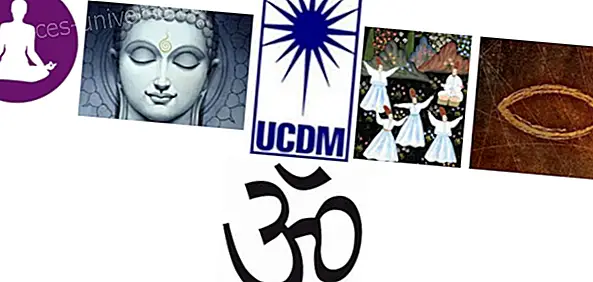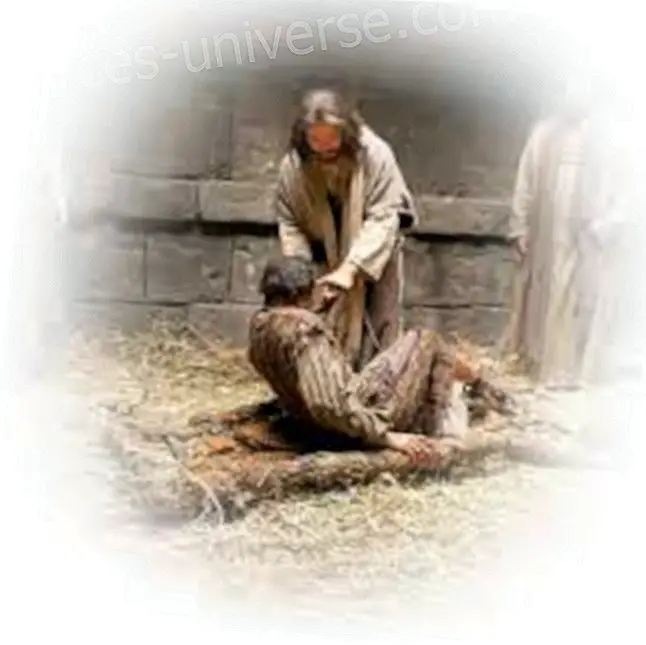Note: based on suggestions and concepts I received, I make this update on this usual topic. HB
THE PSYCHOLOGICAL VICTIMS By Hugo Betancur
I refer to the reflections that follow emotional relationships and relationships, not relationships where human beings are particularly or collectively affected under violent and destructive situations.
People who behave as habitual victims adopt a role or role that seems like an assembly of action aimed at an end: to be helpless, run over by others, abandoned to their cruel destiny. In return they expect to receive attention, compassion and solidarity in the trials they have established against those they accuse. They must win in this game and others must lose and be blamed.
These psychological victims twist reality towards an end of life where they tend to appropriate situations partially experienced in their relationships or adapted to their defenselessness by exaggeratingly increasing them or interpreting them as directed against them by others.
It is a common phenomenon in human coexistence that we make mistakes or that we negatively affect others in our interrelationships - because of our ignorance, our limitations and perhaps because of our unconscious selfishness or our thoughtlessness in the face of the needs of the moment or the expectations of those who are close to us. -. We all make mistakes, some imperceptible and some huge; Sometimes we learn the lessons immediately and at other times belatedly, which confronts us with exchange options and allows us to enrich the stocks of others once we transcend them.
I have discovered as a constant in my work with my patients in their environment, that most of the behaviors or actions that they perceive as directed to cause them harm did not have that purpose on the part of who they accuse as victimizer or as guilty.
I have managed to dialogue with the two parties involved and I have found that their actions corresponded to inevitable manifestations established by the conditions of their personalities and by the conditions of the moment - the human being and his temporal circumstances.
It rains and escapes at the right time. Life rarely fits strictly to our ideals, hopes or demands regarding the actions and behaviors of others - if anything, we only approximate the imagined expectations.
Attributing to other blame for what happens to us in our emotional relationships or to repeat that we are victims of a hapless chance seems a bit arbitrary and selective.
We are part of that interaction that makes it possible to assign different roles - victim and victimizer - according to the possible interpretations: who affects and who is affected, who is the active subject and who is the passive subject.
Probably the people that victims identify and label as perpetrators also have extraordinary positive qualities and achievements, not only with respect to them but also as consistent attributes in their history; perhaps those stigmatized human beings as perpetrators have also felt victims of others in their lives.
The victims prefer to focus on the negative traits or the defects of their relatives, or highlight how they were injured and injured to form before their relatives an image of martyred and outraged while they charge the accused with the image of insensitive and unjust.
The inconvenient thing about this drama is that it is acquiring disproportionate dimensions. The people who execute it choose the dark side of their emotionality and their personality - and also that of others - and take refuge in a tendentious and exaggerated sentimentality. They seem to say to those who snub them * ”since you don't do what I demand from you, I will take revenge by making you look bad with everyone who wants to hear me. That supposed sentimentality that they express is nothing more than twisted sensibilery or sentimentality, a distortion of the events they have undergone to use them in their capacity and without contemplating the damages they cause, something as foolish as someone throwing a cigarette butt on a cotton tank, and to top it all there waiting to see what will happen.
We can all occasionally feel victims of something or someone, as an isolated, non-cumulative event, which is always a normal reaction in which we overflow emotionally. We have all experienced it in our interrupted affective relationships. Normally, we overcome this painful perception and continue to see the goodness of existence.
People who enroll as victims are often quick and unwise in their trials against others whom they reject. They usually do not correct their mistakes or repair the injustices they commit with their excessive comments; they do not seem aware of the enslaving power of their words - no verbal expression ceases to have consequences -, so they do not flow with the dynamic, creative and welcoming movement of their feelings and are left in debt.
Some people can represent a "heap of imperfections and failures" - this is often described by those who proclaim themselves as their victims - and the relationship with them can be highly chaotic and violent for those who stigmatize or define them with these adjectives, which makes it impossible for the parties involved interact in harmony.
If the negative, destructive, oppressive expression, exercised by one of those involved and not by the other - which leads us to consider it as antisocial - predominates, relations must be modified and people run over can ask for legal intervention to resolve situations with changes, not evading them by taking refuge in their laments and intrigues that seek compassion and cover-up complicity from those around them.
If these changes are not achieved, the relationship will become increasingly stormy and should be dissolved.
Victims usually break their emotional relationships without establishing the necessary modifications and without understanding that their own actions were also shapers of the conflict and the crisis: they make an opportunistic judgment that exempts them from responsibility and makes them appear innocent in the eyes of those They have naively addressed their stories and their complaints.
If they start new relationships, their traits will still be present and will re-assemble the same plot; they will engage in an equally devastating drama, and very fruitful to produce confusion - it is something like that they become a magnet that attracts both difficulties and immature personalities with which they easily recreate their tragedies.
* How to identify the victims: *
In a constant way, they are not happy. Something betrays the troubled position they have chosen.
They are addicted to complaints. They are dissociative and take their discomfort to the environments in which they operate. Some people refer to them as `` gossipy or gossiped '' or m rtires once they identify their models of manipulation and evasion.
They have chosen some close characters as representative and are taught against them. They are blamed for their story failures, and sometimes the most prominent or absurd setbacks to cover up the real content of their frustrations. One of my patients attributed her pre-eclampsia and her early cesarean section to her husband's way of being - as a doctor, I talked with women with the same diagnosis she received. They had excellent treatment and privileged love demonstrations from their parents, which did not prevent a rather overwhelming clinical evolution; another patient assured that thanks to her husband she did not know what an orgasm was in her almost twenty years of marriage; An elderly man lamented that because he had married his monotonous current wife, he had lost track of the woman of his dreams. Other human beings, men or women, accuse or blame their spouses for having forced them - by abandonment or dissatisfaction - to sly and secretly schedule consensual and disappointing sex, and ensure that with these they sought to define themselves or themselves, with complacent evasion through infidelity or adultery (most). They also put a burden on them by failing to achieve, in the mirages of the passion, that their confidant of the moment corresponded to them or offered them a special relationship commitment - lovers or the lovers they chose were only looking for adventures and pleasure, because they didn't want lasting and solid relationships with married people - they are usually feared by the risk of violent reactions from their consorts-). When couples grow old, they accuse their spouses for the extinction of their virility, or their femininity, or for their sexual disinterest (to defend their forced withdrawal, the accused or the accused argue that the Counterpart dries a papaya to cantaleta and that has turned off his sensuality)
The victims add new contributions every day to their portrait of a life full of sorrows and bitterness, which they seem to exhibit as their most precious trophy. By contrast, they may have activities that allow them to clothe themselves with some incentive or compensatory motivation, but as extreme in positive notoriety as the bitter sacrifice they star in the world: they achieve success in their professions and activities while They pretend a tortuous defeat in their particular ties.
* Also the language gives them away *
Victims use a devastating language against their imaginary or proven torturers: he / she * always * ; He / she * never *; * * I have claimed it * fifty thousand * times (and it was only a dozen); * years ago * I've been saying the same thing * * (and what they allude to is recent ); I with you / with him / with her do not count * at all * (and they have occupied a good part of his life) *; * I for you * I am a zero * on the left; in my house * nobody * takes me into account; this house * is falling * out of disorder (or dirt, or bad smell, or de ); you * have never * loved me (and family albums show with abundance of details the moments shared with sincere satisfaction - at least their faces remember it in the photographs-); * you only look for the side * when you want ... (sex, or food, or money, or ...); I have endured you * all your life * ... (possibly they mean since they first met, what suffering!); you * are only interested in * ... (anything in particular and not everything that the other person does); he / she * does nothing * or * is useless * (fatal comments that very poorly portray those who throw them)…
And the victims must necessarily turn to doctors or various therapists for assistance. Their preferred consultants are those who reinforce their battered conditions, warn them that they are under great stress, diagnose depressive disorders (major, or minor, or unspecified) and prescribe treatments or “magic” pills to keep them active, all aimed at the body that they presume to have become ill alone, without demanding changes in their behaviors and behaviors - many times these professionals systematically ignore the way of life of their patients and the traits of their personalities (sometimes they seem not to believe that relationships have arrived to a degree of sickly deterioration that the patient fails to overcome due to his own devastating routines and his insistence on feeling unhappy).
Changes are necessary when depression harasses us, what we see in our appetite and sleep disorders, in repeated fatigue, in the ups and downs of our mood, in the burdens we feel. Sometimes sadness, fear and uncertainty appear on our faces and we say that we do not know why we are decayed. By observing our relationships and behaviors we can discover the causes. They come from ourselves, from how we assimilate the interaction with others, and also from the family patterns that recreate unhappiness that we have not overcome.
As victims, we deplete the energy of life in conflicts, in the distortion of our relationships, in evasion. And that wasted energy we need to affirm our balance, our satisfaction, our well-being.
Something that persists must be removed so that we decide to forgive the faults we imposed against others because they could not act with wisdom and generosity at some unfortunate moments of their past. Free from all these chains of their own free will, nature and living beings reward us once again with their exuberance, their spontaneous sensuality and the joy of their prodigious, unstoppable and wise movement.
Hugo Betancur, doctor and psychotherapist.
__________________________________________________________
Life always answers our questions. However, many times we are so distracted and so confused that we pass by without paying attention to their answers and solutions.
And we cannot give answers about what we have not understood. To learn, we need to keep the inquiry in our mind until the moment we manage to free ourselves from the effort of the intellect and perceive clearly because we have integrated into the movement of life.
HB






